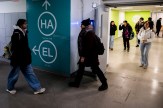Northeastern empowers Boston teens through summer internships and math program
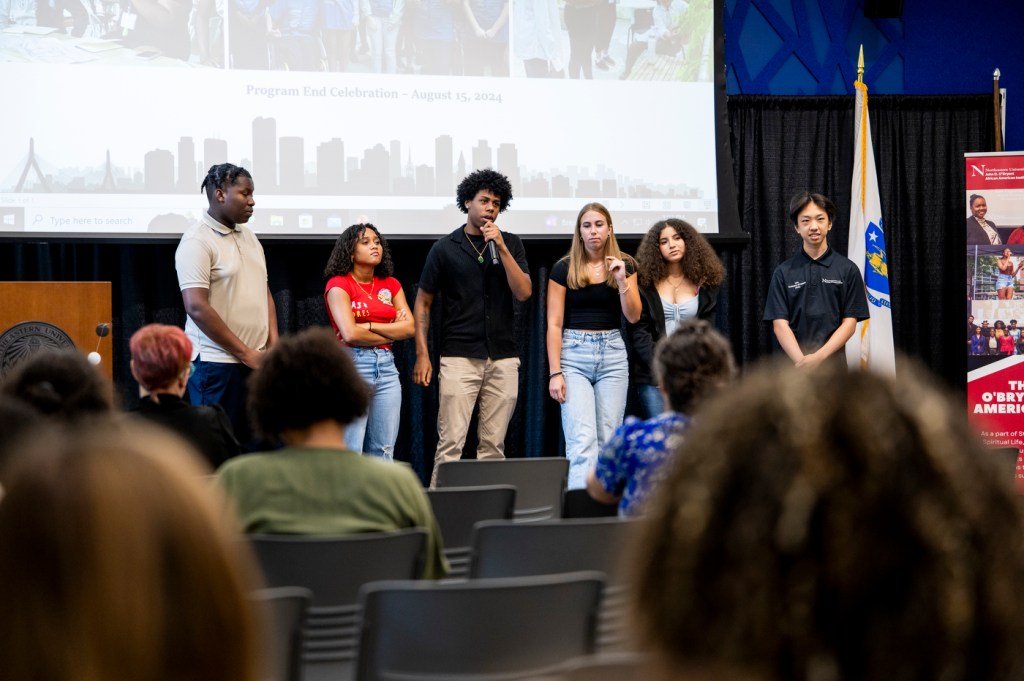
With site visits to Matthews Arena, Loftman Hall, Fenway Center and more, Maureen McGrail has become well acquainted with Northeastern’s Boston campus after interning in the Planning Real Estate and Facilities department this summer.
The 16-year-old Thayer Academy student has aspirations to go into the real estate business, so she appreciated the nitty-gritty details — learning how building plans are developed and the steps involved with renovating various structures around campus.
“I learned a lot about networking and institutional real estate, which are all very interesting,” she said, noting the experience helped solidify what she wanted to do after she graduates.
It also helped that she didn’t have to worry about getting a job on the side, since she was paid during the internship.
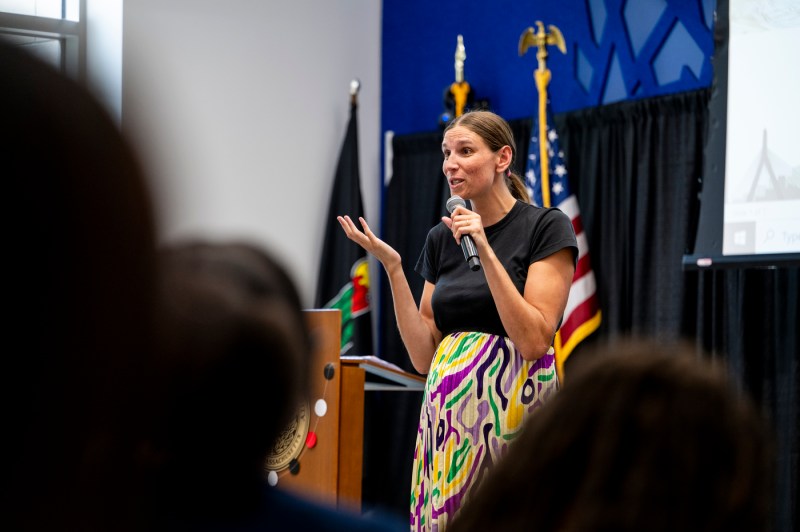
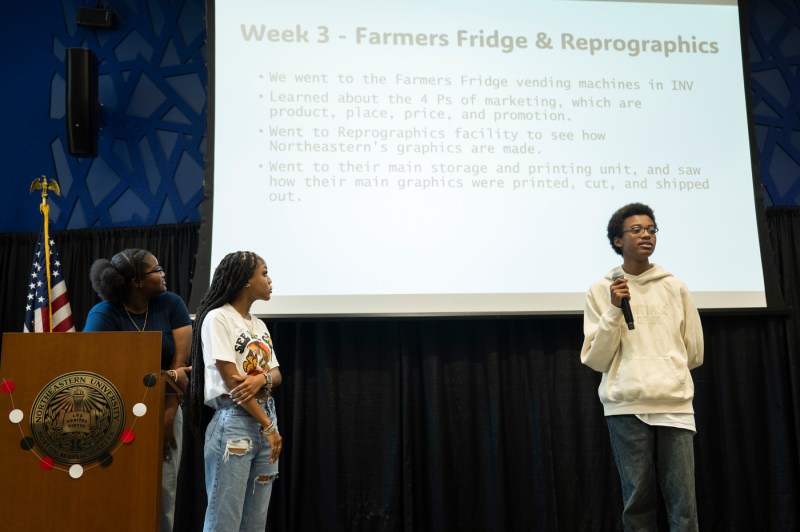
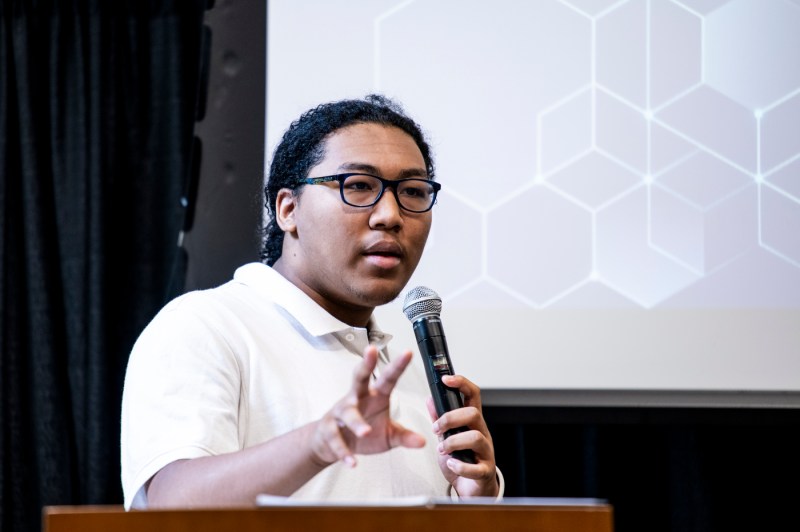
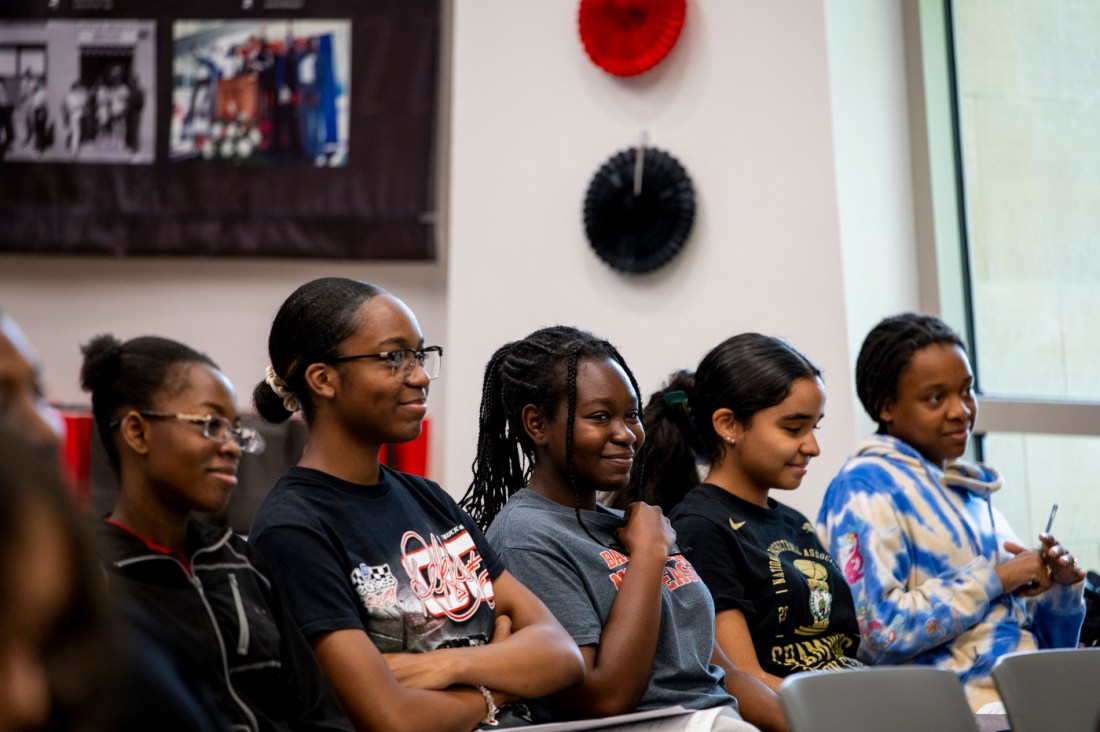
McGrail was one of more than 170 Boston teens to take part in Northeastern’s Summer Youth Employment Program this year, a collaborative effort between Northeastern University’s Community to Community Impact Engine and the city of Boston.
The program has two components to help students get ahead during the summer months.
Students can either take part in internships offered at more than 30 departments on campus or participate in the university’s long-running Bridge to Calculus: a Bridge to Science program, a seven-week intensive summer program aimed to help Boston high school students get a better handle on their math skills before heading back to class in the fall; this year’s program was expanded to include physics, chemistry and biology.
“This program not only pays you in the summer, which is awesome, but it also means young people graduate from high school on time, which means they are more likely to go to college and be employed one to four years after participating in the program,” said Alicia Modestino, an associate professor of economics in Northeastern’s School of Policy and Urban Affairs and the executive director of C2C, at a closing ceremony capping off the Bridge to Calculus Program last week.
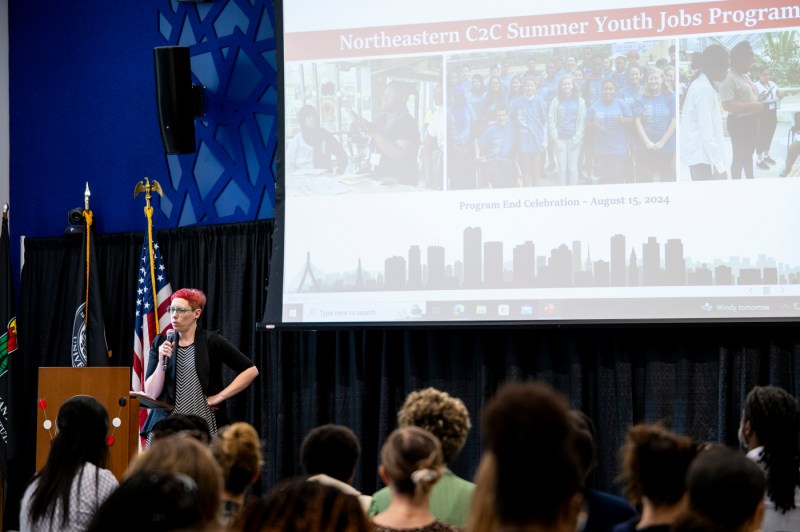
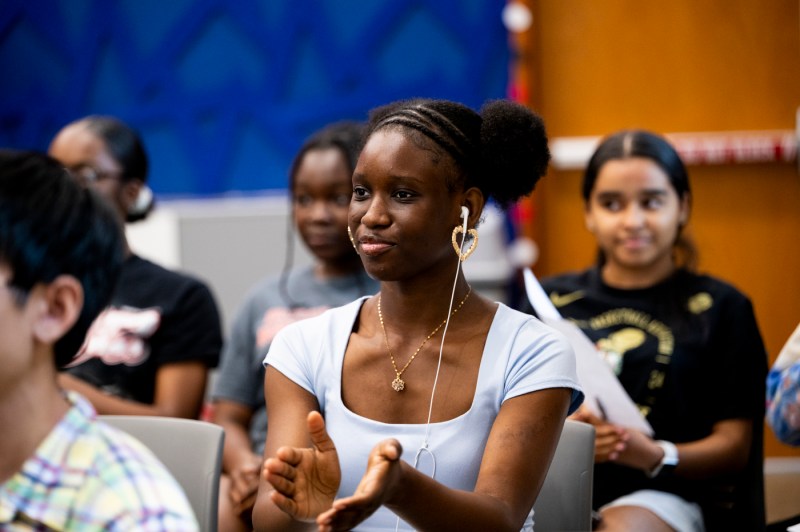
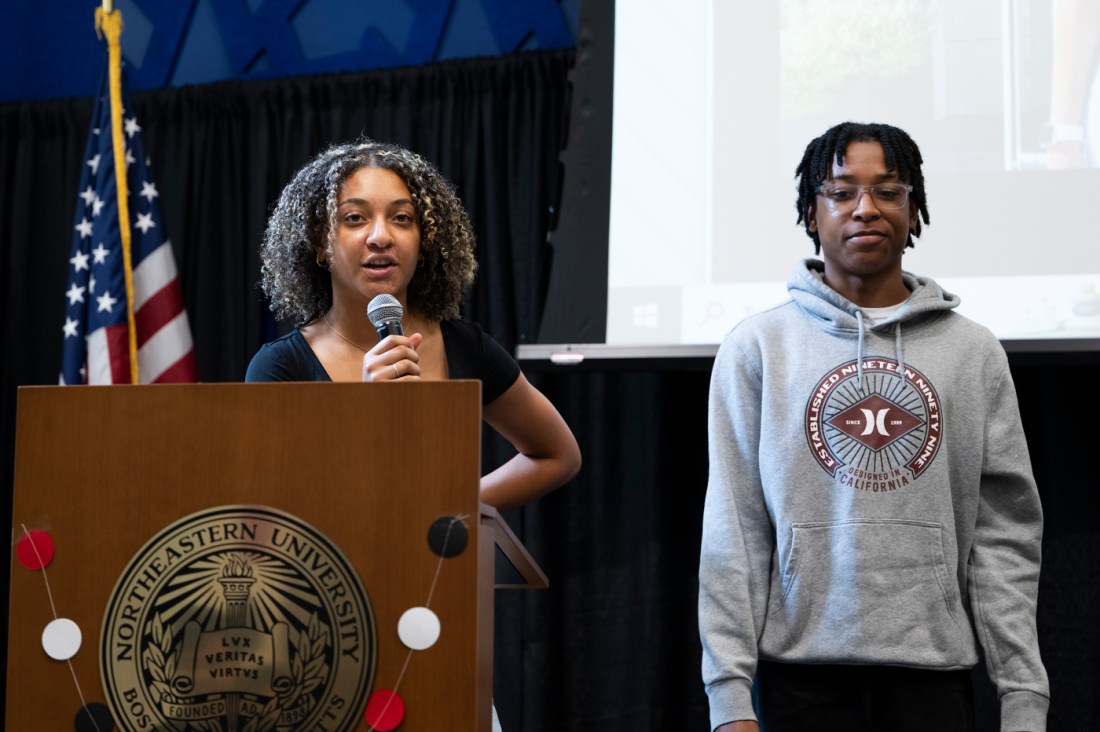
“Your curiosity, your persistence and your hard work has prepared you for what’s going to come in the fall and the rest of your academic career in high school,” said Modestino to the more than 120 students who graduated from the program.
Rashad Cope, deputy chief for worker empowerment for the city of Boston, said the skills students developed during the program are all vital “in navigating our very complex world.
“Understanding how to manage finances, the world of robotics or just tackling challenges of game programming, these are all decisions that will empower you to make informed decisions.”
At a closing celebration highlighting the end of the internship program, Lynn Sanders, global director for the C2C Impact Accelerator, took note of the students’ accomplishments.
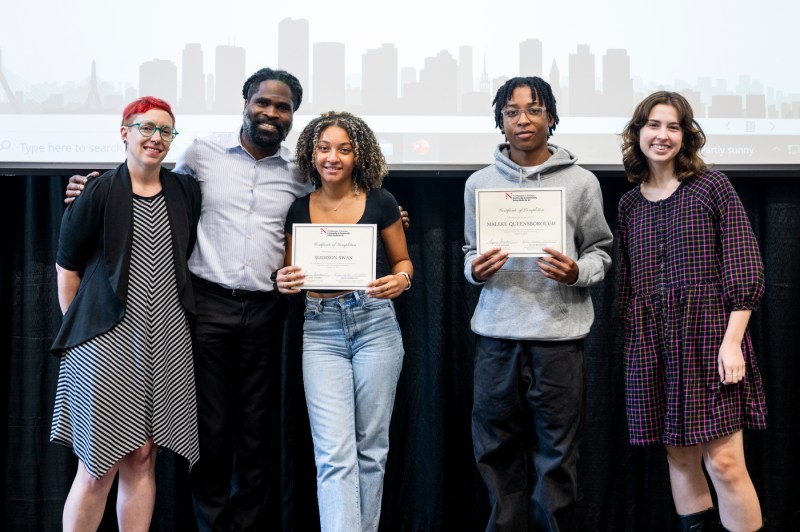
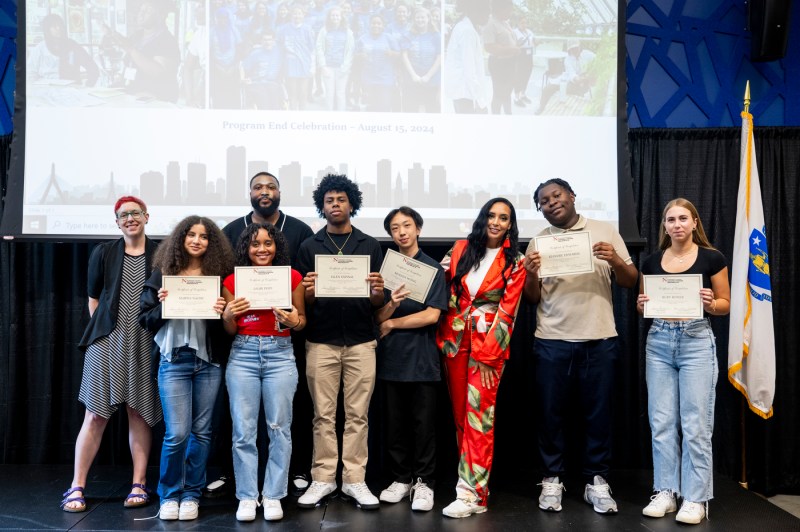
“There are more fun things you could have done this summer, but I’m glad you took the time to invest in yourself over the past seven weeks,” she said.
Interns worked in Business Services, Off-Campus Engagement and Support, City and Community Engagement, College of Professional Studies and the Boston Area Research Initiative (BARI), an urban research hub that partners with Northeastern University.
As an intern at BARI, 17-year-old Brave Arimah, a rising senior at the Boston Latin School, helped the research group develop frameworks the federal government could take advantage of when regulating the use of AI.
“I was able to learn through the job,” he said. “A lot of the job was learning about data analysis, building surveys, really trying to reach out to the community and when they started talking to us, figuring out what they were saying.”
For her internship at the Office of City and Community Engagement, Madison Swan, a 16-year-old student at Needham High School, produced a 10-minute long video on the history of Roxbury.
She said the experience helped her want to pursue a career where she “can give back to her community.”
Students also received encouraging words from some of their supervisors, including Chimel Idiokitas, assistant vice president for community relations for the City and Community Engagement, who highlighted the importance of networking.
“I encourage you all to stay in contact with your supervisors, build your network,” he said. “Make sure you are sharing your emails with your supervisor because you may need them in the future.”

